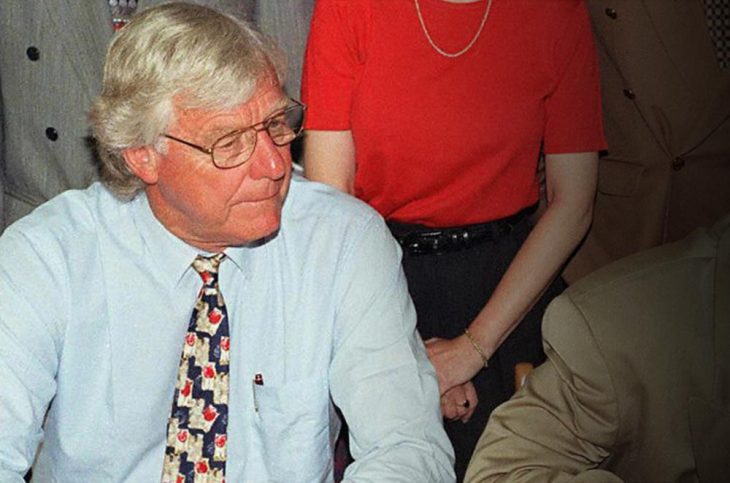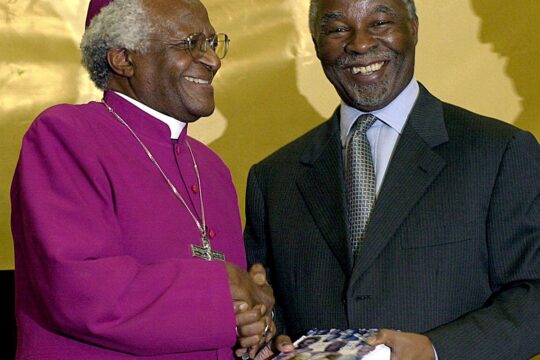On December 5, 2018, the extraordinary Dr. Alex Boraine passed away in his home city of Cape Town, at age 87. For so many reasons, his life is one that must be celebrated and studied by all who believe in human rights and conflict resolution.
Alex and I first met in 2000, during his preparations to establish the International Center for Transitional Justice. At the time, Alex had already enjoyed enough impressive careers to cover a lifetime: he had been a prominent Methodist minister, businessman, parliamentarian, think-tank founder, academic, and deputy chair of the South African Truth and Reconciliation Commission (TRC), among much else.
If Alex’s professional life was marked by transitions, his intellectual passion was no different. He played a huge role in conceptualising and bringing about the conditions for South Africa’s negotiated transition in the 1980s and 1990s, helping prevent a civil war. He then played a key role in conceiving and leading the TRC: by far the most innovative model of transitional justice the world has ever known.
What I know best about Alex, however, is his singular contribution to the theory and practice of transitional justice.
Listening to the voices of victims
Because Alex thought equally with heart and mind, he saw things differently – and better – than most. He was always the first in the room to insist that we listen carefully to the voices of victims, no matter how uncomfortable they made us, as it is our solemn duty to do so.
He was likewise the person who most insisted that transitional justice is not about the pursuit of a single ideal, but rather the “holding in tension” of a diverse spectrum of values – truth, justice, reparation, reform and reconciliation – that could sustain a transition out of conflict or tyranny or advance it a step further.
As uncontroversial as such views may seem, Alex nevertheless had to defend himself – more than once – against misguided accusations of betraying the cause of justice, including at an early high-level meeting I attended with him in the office of Human Rights Watch.
However, in his inimitable way, he always defended his views with patience and with intellect.
To watch Alex in action was to be constantly inspired, especially when it came to tackling the big debates and dilemmas of transitional justice. To his credit, he never shied away from defending controversial positions if he felt they represented the best moral, legal or political option under the circumstances. Indeed, such situations were the ones in which Alex operated at the height of his intellectual and oratorical powers.
On my last visit with him and his wife in Cape Town, just one year ago, I found Alex to be operating in the same generous spirit I always cherished in him. He had dozens of questions for me about my work, my family and much else. He was ready to hop on a plane to be part of a meeting about Zimbabwe, or any other crisis situation in which he could possibly be of any help.
Alex’s humane, wise, and compassionate voice will be missed by an entire generation of people he brought into the field of transitional justice: one that he took from infancy to adulthood. His example and presence will be missed terribly.






